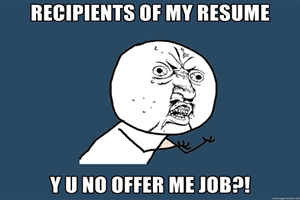So youve just started you job search again. What you dont include on your resume can be as important as what you do include. Here are 10 things you should leave off:
1. An objective + Personal Information
Resume objectives never help and often hurt. Not only do they feel outdated at this point, but theyre all about what you want, rather than what this stage of the hiring process is all about--what the employer wants. Your resume should be about showing your experience, skills, and accomplishments. If you want to talk about how this particular position is the perfect next step in your career, use the cover letter for that. Also leave out, personal information such as, date of birth, full address, and marital status.
2. Short-term jobs.
Short-term jobs raise red flags for hiring managers, who will wonder if you were fired, couldnt do the work, or had trouble getting along with co-workers. Plus, a few months on a job wont typically be useful in showing any real accomplishments or advancement anyway.
[Related: 29% of Job Seekers Haven’t Updated Resume in Over a Year!]
One exception to this rule is if the job was short-term because it was designed that way, like contract work or, say, working on a political campaign. Those wont raise the sorts of questions above, because youll have an explanation that doesnt reflect on you poorly.
3. A functional format.
Functional resumes (which list skills and abilities without including a chronological job history) are widely hated by employers, since they easily mask limited work experience or significant work gaps and make it difficult to understand a candidates career progression. For most hiring managers, these resumes are an immediate red flag that you might be hiding something.
4. Your photo.
Unless youre applying for a job as a model or actor, photos of yourself have no place on your resume. Since your appearance has nothing to do with your ability to do the job, including a photo comes across as naive and unprofessional.
5. A fancy design.
Heres what most hiring managers think when we see a resume with unusual design or use of color: Does this candidate think that their skills and achievements wont speak for themselves? Do they not understand what employers are looking for? Do they put an inappropriate emphasis on appearances over substance? (The obvious exception to this rule is if youre applying for design jobs.)
6. Subjective descriptions.
Your resume is for experience and accomplishments only. Its not the place for subjective traits, like "great leadership skills" or "creative innovator." Smart employers ignore anything subjective that applicants write about themselves because so many peoples self-assessments are wildly inaccurate, so your resume should stick to objective facts.
7. Any mention of high school.
If youre more than a few years past your high school graduation date, employers dont care which high school you attended or how accomplished you were there. Keep any mention of high school off your resume.
8. Extra pages.
If youre in your 20s, your resume should only be one page; theres not enough experience to justify a second one. If youre older, two pages are fine, but you go over that limit at your own peril. Hiring managers may spend only 20 or 30 seconds on your application initially, so extra pages are either ignored or they dilute the impact of the others. Your resume should be for highlights, not extensive detail.
[Related: 6 Resume tips to look great, Appearances Count!]
9. Your salary.
Resumes dont typically include a salary history, so candidates who include it come across as naive. And by sharing that information unbidden, youll also compromise your negotiating power later.
10. References.
Any mention of references, including the statement: "references are available upon request." You dont need to say that youll provide references if asked, because that goes without saying. Youre not causing any harm by including that now somewhat-dated statement, but it takes up space you could use for something else.
Get a custom made resume by professionals
Follow us on twitter @purejobsearch











